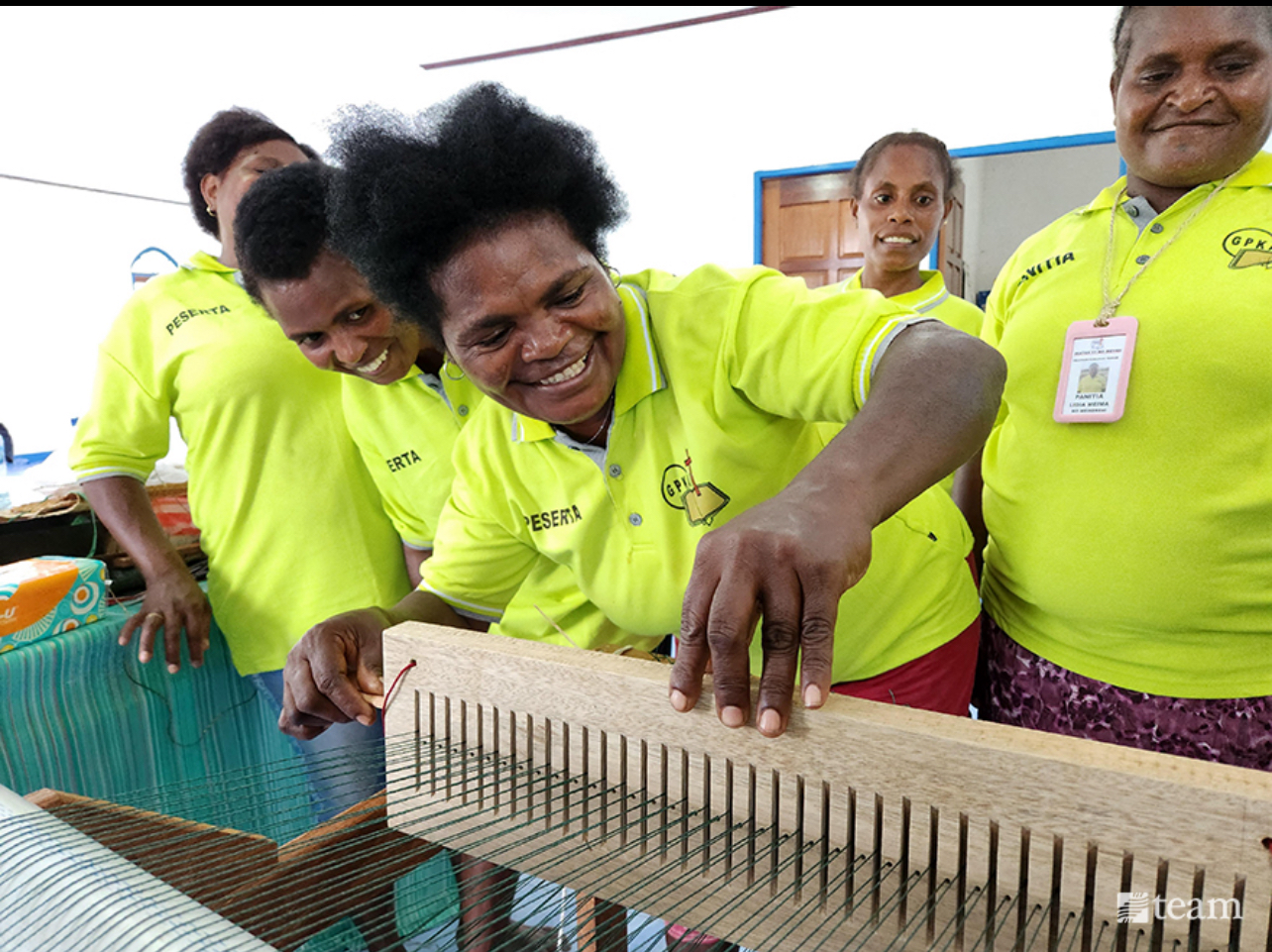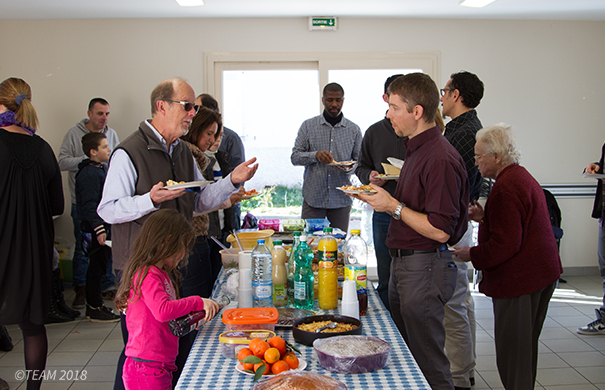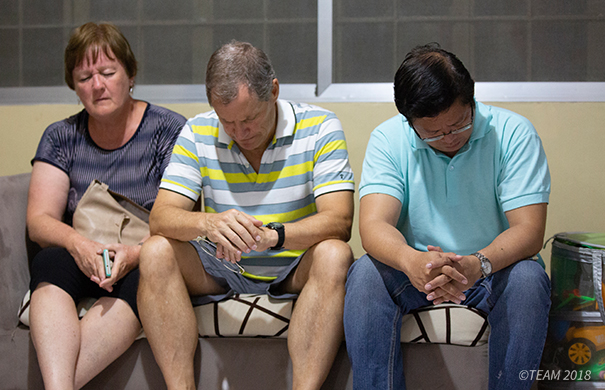
Prayer Focus
Distrustful of Religion — but Not of Coffee [October Prayer Focus]
October 2, 2018
by Mark Watson

Raphael* had never felt so empty. He’d walked away from his Jehovah Witness faith. And now, he didn’t know how to find God.
When Raphael noticed a new church in his French hometown, he felt drawn to it, but he wasn’t sure why. He passed by it several times, afraid to go in. He didn’t want to get sucked back into another false religion.
Finally, he worked up the courage to step inside.
TEAM missionaries Paul and Karan Davis were there to offer him a warm cup of coffee. As the three chatted, Raphael found himself opening up to them about all he’d been through.
Several coffee visits later, Raphael felt safe enough to attend a worship service — where he discovered the truth about God’s love.
Now, Raphael is growing in his new faith and eager to share his testimony.
All thanks to two church planters and a cup of coffee.
This month, will you join us in prayer for church planters around the world? Pray that many like Raphael will come to know the Lord through their service.
1. Pray that church planters will develop solid, location-based strategies.

Cities around the world will require different church planting methods — which is why there is a great need for prayer and preparation.
Most church planters establish several churches throughout their careers. They constantly have to develop new approaches because each location has its own culture and group of people.
“Every church plant presents its own challenges,” said Paul Davis. “What worked in one city may or may not have an effect in the next city.”
Pray that church planters will be creative in developing strategies suited to the people they serve. Ask God to help them truly understand the communities they’re working in.
2. Pray for constant rejuvenation for workers.

TEAM missionaries David and Kathy North have faced discouragement through church planting, but they have also witnessed the Lord’s faithfulness through it all.
Church planting is a process — often, a long process. And being so deeply invested in other people for extended periods of time can be emotionally and spiritually taxing.
Sometimes the Enemy will use relational conflicts in a new church to discourage missionaries — which is exactly what happened to David and Kathy North at one of their church plants in the Philippines.
“I said to Kathy, ‘If it’s going to be like this, I can’t do it,’” David said. “But then God just really impressed on our hearts … we’re going to have a great church here one day.”
So the Norths stayed, despite the obstacles. And now, over eight years later, there is a growing church in the place that almost broke them.
Pray for missionaries who feel overwhelmed by the difficulties of church planting. Ask God to give them strength to press on, even in the face of opposition.
3. Ask God to provide church leadership training for local believers.

Will you ask God to provide the resources church plants need to reproduce new churches and disciples of Jesus?
The ultimate goal of church planting is to produce functioning churches, again and again.
And in order to create a church that’s sustainable, locals must learn to lead the congregation once the missionaries are gone.
“When we left our last church plant, it was a really hard go. I remember sitting in church one Sunday where we weren’t doing anything, and I looked at Kathy and said, ‘We’re finished. They don’t need us anymore,’” David said. “But this is what we’re here to do, is to get it started and then move on.”
Ask God to raise up nationals who are willing to learn and lead local congregations so that church planters can move on to new communities in need. Pray that missionaries will have the discernment to know when it’s time to move on.
Thank you for partnering with us in prayer! Click here to get a print-out of this month’s Prayer Focus requests and praise reports.
*Name changed.

